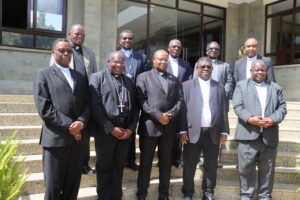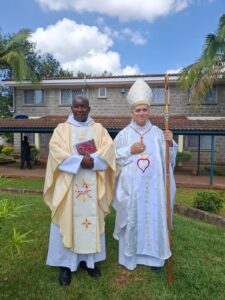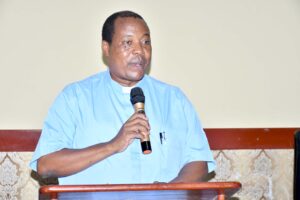SECAM: SECAM Condemn Xenophobia And Reprisal Attacks In Africa
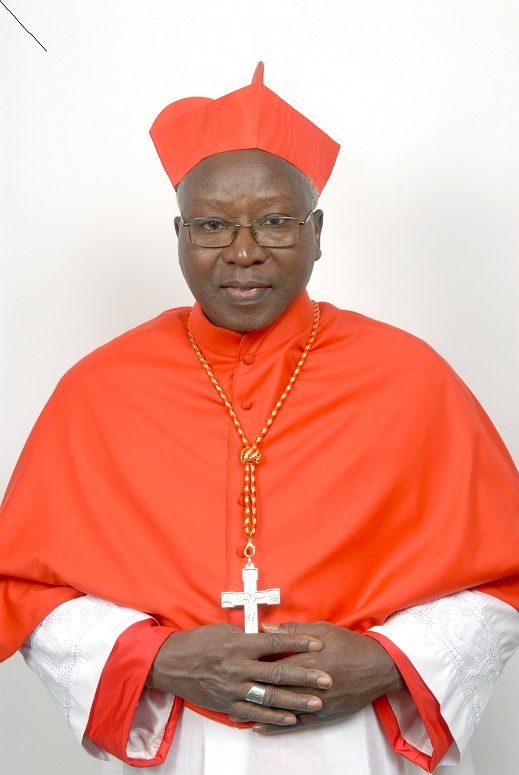
President of SECAM, His Eminence Philippe Ouedraogo Archbishop of Ouagadougou in Burkina Faso
The standing committee of the Symposium of Episcopal Conferences in Africa and Madagascar (SECAM) has condemned the xenophobic attacks which recently rocked South Africa where the local attacked, burned and damaged property and migrants from across Africa, resulting in acts of retaliation against South Africa citizens and property in many parts of the continent.
News and graphic images have been circulating on the continent showing people looting shops and damaging property belonging to South African more especially in Nigeria and the Democratic Republic of Congo (DRC)
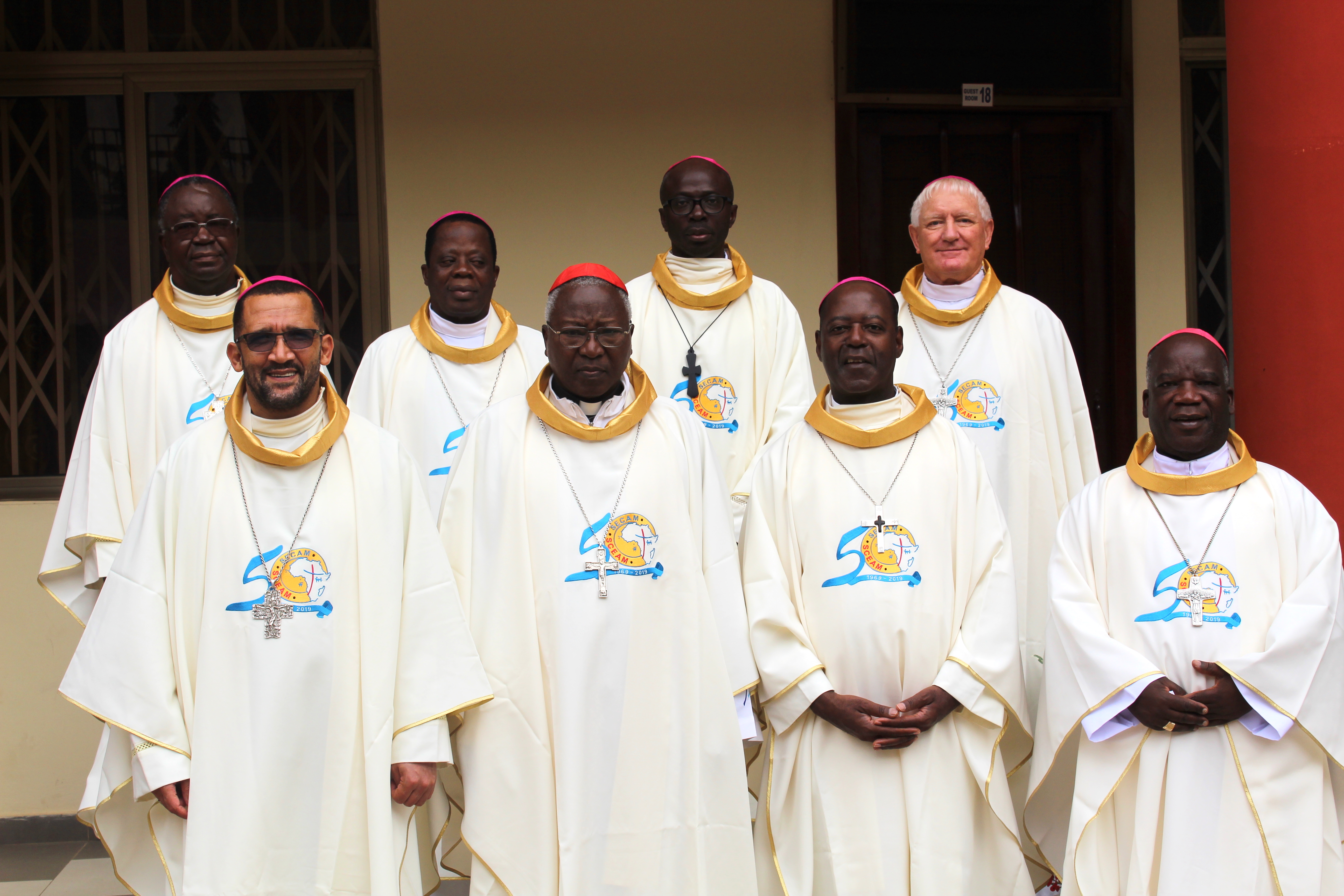
Symposium of Episcopal Conferences in
Africa and Madagascar (SECAM)
In a statement released by the SECAM Secretariat in Accra, Ghana, dated 4th October 2019 and signed by the President of SECAM, His Eminence Philippe Ouedraogo Archbishop of Ouagadougou in Burkina Faso, SECAM joins hands with the Catholic Bishops in the Republic of South Africa and the Inter-Regional Meeting of Southern African Bishops (IMBISA) in condemning the attacks on people from other countries, referring to it as “barbaric destruction of life and property”
SECAM’s statement which calls xenophobia “a failure to realize that as human beings, we have a common origin and common God (Gen. 1:26)” calls upon Christians and people in Africa to desist from violence and hatred of people from other countries and instead to become promoters of human dignity and agents of reconciliation.
“Let us never forget what the Holy Father, Pope Francis, has continually urged everybody to do, namely, to ‘welcome, protect, promote and integrate migrants and any other stranger among us and build a society that seeks peaceful coexistence, wellbeing in equality and reject all discrimination,” reads part of the statement.
Below is the full SECAM statement.

SECAM STATEMENT ON XENOPHOBIC AND REPRISAL ATTACKS IN AFRICA
“I was a stranger and you welcomed me”
(Mtt 25:35)
We, the Standing Committee members of the Symposium of Episcopal Conferences of Africa and Madagascar (SECAM), are deeply saddened by recent xenophobic attacks in South Africa that resulted to reprisals in different parts of the continent, especially, Nigeria and the Democratic Republic of Congo (DRC); “violence has had, or in some cases still has, the upper hand” in other countries like Burkina Faso, Cameroon, Chad, Niger etc. Indeed, “Africa is full of problems” (Ecclesia in Africa nos. 39-40). We join voice with our brother Bishops of the Southern African Catholic Bishops’ Conference (SACBC) and Inter-regional Meeting of Southern African Bishops (IMBISA) and all others, to condemn the barbaric destruction of life and property, the hatred and maltreatment suffered by foreigners in various African countries over the years.
We are most seriously concerned about derogatory and inflammatory remarks made by different people, including high profile ones, concerning migrants, refugees, asylum seekers, and other vulnerable persons, following the xenophobia and reprisal attacks.
Xenophobia signifies (amongst other things), the failure to realize that we have a common origin and common Father, God, who made each of us in his own image and likeness (Gn 1:26). Moreover, it is demanded in Lev 19:33-34 that “when an alien resides with you in your land, you shall not oppress the alien. The alien who resides with you shall be to you as the citizen among you; you shall love the alien as yourself, for you were aliens in the land of Egypt”. Similarly, Jesus Christ admonished us to welcome strangers (Mtt 25:35), saying further that: “just as you did it to one of the least of these who are members of my family, you did it to me” (Mtt 25:40).
Consequently, it does not matter where you are born (South Africa, Nigeria, Cameroon, Zambia, Zimbabwe etc), we are all true brothers and sisters of the one family of God and should be each other’s keeper (Gn 4:9). In Africa we say “I am because we are”, which is why we Bishops of Africa chose Family as a more proper image of the Church during the First Special Assembly for Africa of the Synod of Bishops in 1994. Xenophobic violence and its reprisals are a total shame not only to our corporate personality but also to Catholicism in Africa, in particular, and Christianity in general (cf., EIA, nos. 42-43, 63).
Let us never forget what the Holy Father, Pope Francis has continually urged everybody to do, namely, welcome, protect, promote and integrate migrants and any other stranger among us and to build a society that seeks peaceful well-being in equality and reject all discrimination. This is particularly important in the context of pastoral care, preaching and solidarity initiatives, within the Churches, and with the wider global community.
We solemnly appeal to all people living in Africa, Christians, especially, to eschew all forms of violence, prejudice and hatred and promote the dignity of each human person wherever he/she finds him/herself, become an agent of reconciliation, justice peace and unity as Pope Emeritus, Benedict XVI already charged us to do (Africae Munus, no. 1).
We passionately urge parents, relatives, guardians, teachers and other mentors to help children to seriously appreciate what it means to be sisters and brothers in God’s family. By word, but more by exemplary conduct, parents, with the support of those mentioned above, have the responsibility to form the moral integrity of children and the youth.
We call on leaders of all categories to avoid utterances that inspire violence. Governments and political actors should urgently bring an end to the rising tide of hatred and any form of violence everywhere on the African continent and the Islands. The exclusion, marginalization, stigmatization and criminalization of migrants and refugees need to become part of good governance agenda. It is, similarly, vital for government leaders across Africa, to live up to their responsibility to deliver services directly beneficial to vulnerable citizens and empower them. Furthermore, government appointments should be strictly based on merit, qualification and efficiency rather than political, religious or ethnic patronage (Newsletter of Mthatha Diocese, October 2019),
We invite all media platforms to refrain from disseminating divisive and dehumanizing information, ideas and initiatives, and commit themselves to engaging media for the promotion of positive messages.
We thank God for his continued benevolence and blessings in spite of our vicious acts. May Mary the Mother of Jesus and the Queen of Africa inspire and help us live truly and peacefully as brothers and sisters of her Son, Jesus Christ.
Signed by
Philippe Nakellentuba Cardinal Ouédraogo,
Archbishop of Ouagadougou, Burkina Faso
SECAM President
Accra, Ghana
4th October 2019
